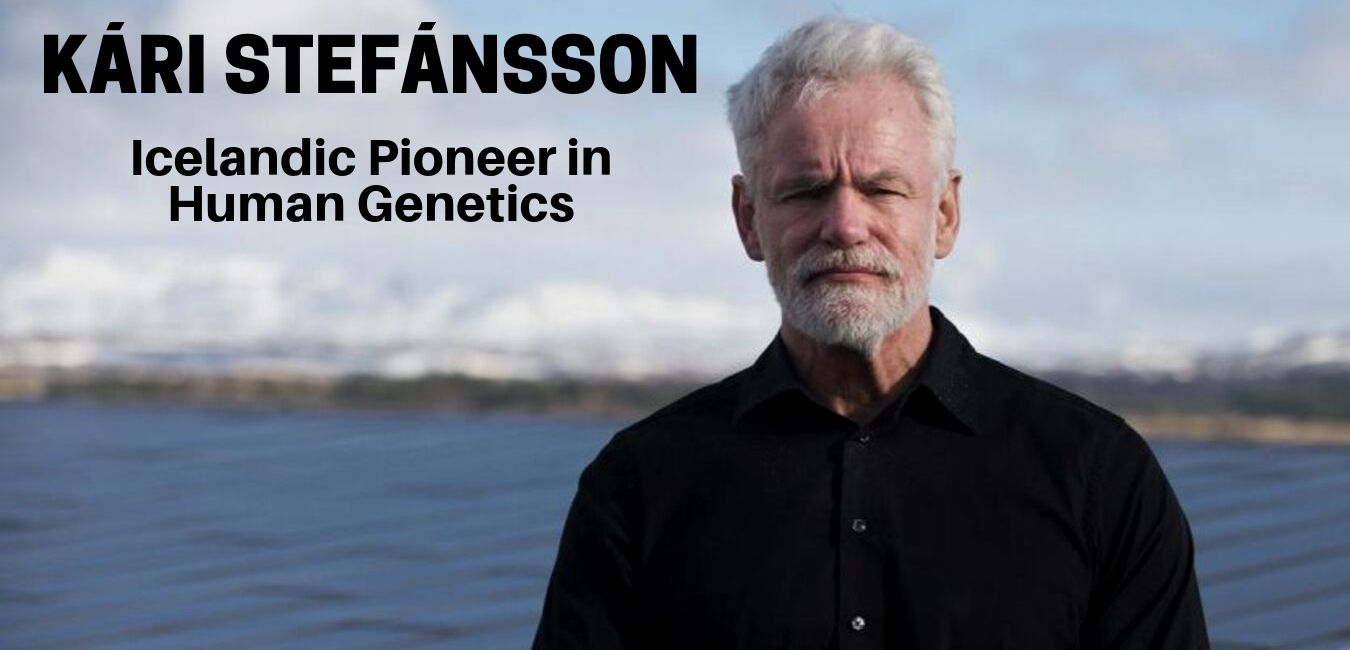

For episode fifty of the All Things Iceland podcast, I interviewed Kári Stefánsson, an Icelandic neurologist who is also the founder and CEO of deCode genetics. deCode is a biopharmaceutical company based in Reykjavík. Kári pioneered the use of,
“population scale genetics to understand variation in the sequence of the human genome.”
WIkipedia
The discoveries from using this approach have helped with developing new drugs. Additionally, the discoveries have helped scientists to better understand cardiovascular disease, cancer, and schizophrenia, just to name a few. Additionally, the population scale approach has served as a model for other national genome projects around the world.
Kári’s Background
Before founding deCode, Kári Stefánsson served as a professor of Neurology at the University of Chicago. Later, he became the Chief of the neuropathology division at Harvard University. Since the founding of deCode, Kári has received many accolades.
While I was curious to hear about his work, we spoke about his views on certain topics in Icelandic society. We also spoke about what he thought of Americans after living in the U.S. for more than 20 years, and, of course, his favorite Icelandic word or phrase. Kári shared his views on climate change, Donald Trump, and many other topics.
The Video of Kári Receiving the William Allan Award in 2017
The Questions I Asked Kári Stefánsson
- What sparked your interest in studying genetics?
- Why did you start deCode Genetics and why did you choose to do it in Iceland?
- Throughout all of the years that you have been working on decoding human genetics, what finding(s) are you most proud of?
- Can you share why you chose to recreate the genome of the first Black man in Iceland. First, were some of the Icelanders surprised to find out that they are descendants of a black man? Second, can you provide some insight into why Iceland provides a unique environment to do this type of genome sequencing?
- Over the years you have been very vocal in the news about different issues in Iceland. Do you think that because of your status as a highly respected scientist, that it is your responsibility to share your views on these matters or is it mostly from the point of view of a concerned citizen?
- In 2016, you announced that you could identify everyone in Iceland that had a high risk of getting cancer. You wanted to work with healthcare specialists to reach out to those people to alert them of the potential danger. However, there was push back. Even though, people had consented to having their genes analyzed, they had not consented to being alerted about possible health risks found in their genes. Has this situation changed at all? Meaning, have any laws changed to make this possible and/or has your opinion changed about contacting people?
- You mentioned to me that you live in the United States for over 20 years studying its natives. Did you find out anything fascinating and/or strange about us?
- What is your favorite Icelandic word or phrase?
I hope you enjoyed this interview with Kári Stefánsson.
Let’s be social! Here is where you can connect with me on social media platforms:
I hope you enjoyed listening to this interview. Make sure you are subscribed to the All Things Iceland podcast so you don’t miss new episodes. If the platform you are listening to this podcast on allows you to leave a review, please do so, if you haven’t already.
Þakka þér kærlega fyrir að hlusta (og að lesa) og sjáumst fljótlega
Thank you kindly for listening (and reading) and see you soon!